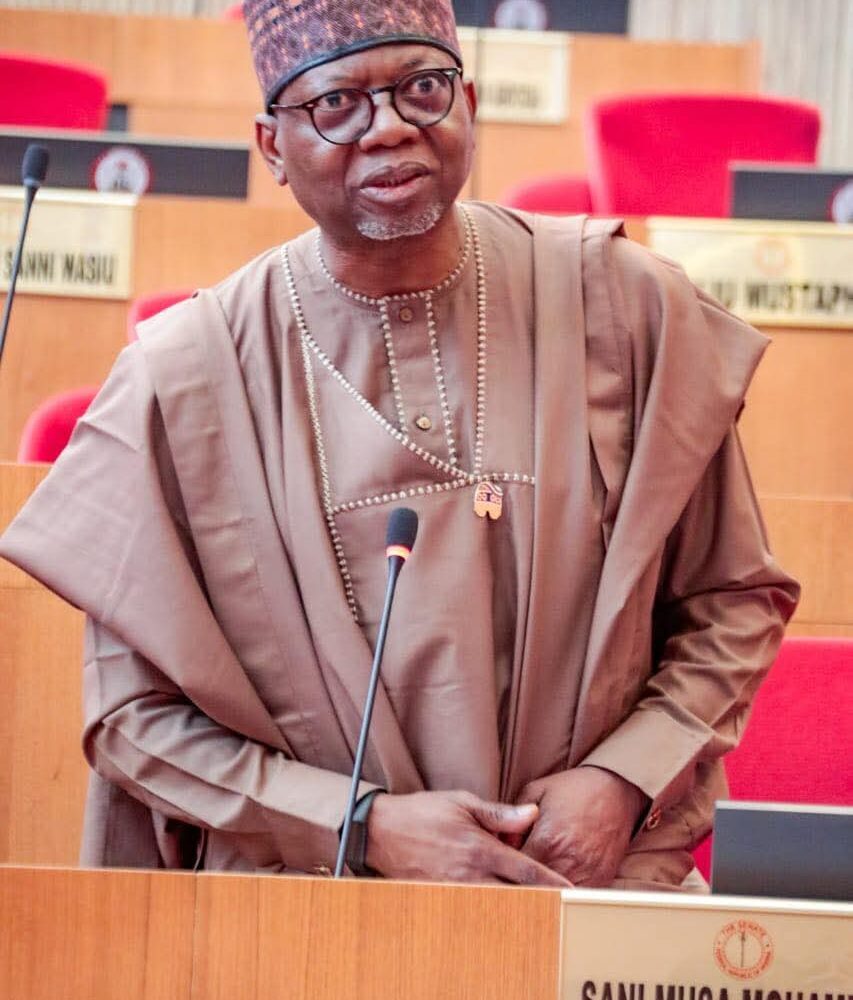YOU remember how Portable, the Wahala musician, described government a few days ago? He said, “after God, na government.” Great writers are beautiful snakes. The snakes become something else, something more lethal if they are journalists. The state is a snake hunter, its weapon is the law. So, if you wrote yesterday and today and you want to write tomorrow, one way to be alive and around is by learning to strike without being struck back by the state.
And so, I got a copy of the Editor-in-Chief of Leadership newspaper, Azu Ishiekwene’s latest book from him last week. Restless me ran through the table of contents and stopped midway. I spotted two chapters of interest right in the middle of the long list. One of them teaches the art of troublemaking; the other is on “minding the law” – how to escape trouble.
I have always known that writers are troublemakers. Me, I do not like (or write) trouble but I enjoy reading media people who make tomes of trouble. I have around me many of them — big boys, big girls with large intellectual biceps. They routinely taunt the state with the muscle of their brilliance and courage. Azu is one of them. He has always been.
Reading the pages in that chapter of the book, I could see that the author teaches how to stir trouble “without causing mayhem.” He writes, with apology to the French, about how to tell people to go to hell and “make them look forward to the trip.” Then he gives his central objective in graphic imagery: “I will share with you some tips on how to land the punch where it counts, with velvet gloves…” The tips? The very first of the tips holds your hand and tells you how to “find the bright spot in the darkness.”
The other chapter he christened “Minding the law.” The Yoruba say if you know how to eat Isin fruit, you must know how to yank off the death in its eyes. This chapter is about writing without falling into the hands of the enemy.
This book is about writing successfully without running foul of the law. And, so teacher of ‘trouble’ starts here with a thoughtful quote: “Never try to destroy someone’s life with a lie, when yours can be destroyed by the truth.” Who owns those words? I can’t see that clearly in the book. But truth is a very strong armour against the darts of wounded power. You find on these pages how truth helps and how fairness in reporting saves journalists.
In more practical ways, the author makes you understand that safeguarding freedom of the press is essential, but freedom comes with responsibility. So, he makes you to become familiar with basic media laws in Nigeria and how to apply them to your work.
Azu entitled the book ‘Writing for Media and Monetising it’. Journalists are mules — service animals. If you like, call them work animals; beasts of burden. But should it continue like that? They deserve to have money and live well. That is what the book is about.
You can see from what I have exhibited to you so far that the book is more than what the title says it is. If you are looking for a way to find your voice and connect with your desired audience, read the book. If you’ve been searching for a way to write and stand out of the crowd, read.
You know what gives Iroko its relevance, it is because it is different in everything from the shrubs around it. The book teaches how to be different by creating your own style. Copycats never get ahead, they are always behind. The style is the man, it is also one of the beacons that show the difference between masters and novices. There is a great profit in being originally different.
My people say you cannot trade with other people’s eyes and profit. You can’t be a successful brand by copying other brands. Azu cites a personal story: He was a part two journalism student. His teacher, Olatunji Dare, asked him and others to write a 1,000 -word essay on campus life. What did he do? Hear him: “At the time, I was reading Charles Dickens’ Great Expectations. In the essay, I waxed lyrical with lines from the protagonist of the novel, Pip, as he struggled, against many odds, from childhood to adulthood. I thought it would impress Dare. When I submitted my work, however, he summoned me and after a long, puzzled look, asked: “What have you been reading?”
“Dickens, sir”.
He looked up again and exploded into a long, heartfelt laughter, and then said:
“It is not showing at all!”
As he handed my essay back to me and I stumbled out of his office, the sting of his laughter still ringing in my ear, he said:
“Azu, go and write the way you talk.” That advice has stuck with me for over 30 years. “Write the way you talk…”
Read that passage again. What walker do the young need again as they take their tentative steps into the forest of opportunities, and challenges, writing for the media?
If you read the book because of the monetising promise it offers in its title, you will have to search deep into it to find your goal. I searched for it too flipping from page to page, chapter to chapter until I got to page 122 (chapter 13). There I met what the author proudly announces as “Making Money” with a starting quote, “Content is king” attributed to the king of money himself: Bill Gates.
Here, the author shares tools for developing content, teaches how to use data and analytics as guides, teaches how to master the art of value creation and how to lock in audiences and monetise content. So, in specific terms, what are the author’s orijo to making money by writing for the media? I am afraid you will have to read the very relatable tips and tales he carefully put on more than 15 pages.
To benefit from the wisdom of those who have been there, you have to be there. In this age of digital heist and mindless plagiarism, you have to read and know what Yoruba mothers mean when they pray for their children that they would not work for others to steal and eat.
Following that chapter immediately I saw “Reinventing yourself in changing times.” And what is the author’s idea on self-reinvention? “Self-reinvention is simply taking a good, hard look at yourself and asking if there could be more (of you) at what price.” I found that to be quite deep. And, it is very worthy of being explored further. In simple terms, I will explain self-reinvention as self-rebirth. The place of an ancestor is in the past, not in the present. You will remain relevant and your brand bankable if you are fresh in breath and brain. If you came as Abraham Lincoln in 1861, you would only fit into 1961 American life if you came as John Kennedy. Do not think a monochrome TV of the past can entice watchers in this age of smart TV. The author addresses this secret of success in today’s journalism. I join him in telling you: re-hone skills, write and make money.
In this age of the Internet and all its associated ‘challenges’ and opportunities like the AI (artificial intelligence), every old and upcoming writer needs new skills to navigate the labyrinth of life. This is a handbook for how to explore that future. On some of the pages, the author brings in a very insightful interview with Professor Toyin Falola, master of intellectual profundity, to teach how not to stay stale on old skills.
If you are a local writer with an eye for the global, or you are just setting out with an ambition to write for the whole wide world, there is a valuable chapter for you in the book. The author says his objective for writing that chapter is to share with you compulsory tools for writing for the global stage, to explore networking techniques, share ideas on how to manage cultural barriers and provide tools on managing the language toolbox. Drawing from his own personal experiences and those of other masters of the trade, I can confirm that he delivered on those aims.
The author did not forget to create in the book a place for luck and God in human affairs — particularly in shaping careers. This theme, he discusses thoroughly with two insightful interviews with two important personalities in media practice in Nigeria. Who are these two persons? Read the book. It is significant, however, that this part on God and luck is the chapter that ends the 259-page remarkable effort.
For a man who states very early in the book that his ambition as a young man was to write as James Hadley Chase, it is no surprise that this book, in style and language, reads a seductive thrill. Fluid and breezy, it is almost flawless. Almost flawless because I saw him on one occasion fall into the common pit of using the subject pronoun ‘I’ where the object pronoun ‘me’ ought to be. Other than that, I congratulate the author for a safe and successful delivery.
I would love to see this book on the menu list of journalism/communication schools. It may be one of the drugs we’ve been waiting for that will cure media professionals of their lack of business sense — and of their poverty.
If the depth and breadth of one lone book are just enough to win one a professorial chair, I think this author should henceforth be called a professor of media marketing.





